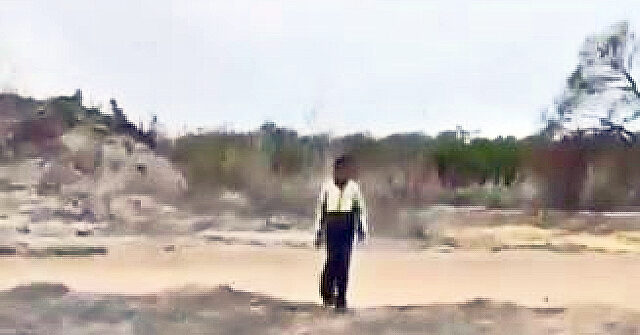During the Thanksgiving holiday, while many Americans gathered with their families, the Texas Department of Public Safety (DPS) troopers were actively patrolling the Texas border. Their vigilance led to the discovery of a ten-year-old boy from El Salvador who had been abandoned by a human smuggler in Maverick County, near Eagle Pass. The child was found crying and lost, without food or water, only equipped with a cell phone. Texas DPS spokesman Lieutenant Chris Olivarez shared this distressing encounter on social media, reinforcing the harsh realities faced by many children seeking refuge in the United States. He highlighted the serious risks these children endure due to the current conditions at the southern border, a situation exacerbated by the actions of traffickers.
The plight of unaccompanied minors at the border is becoming increasingly alarming. Just days before the incident involving the ten-year-old boy, another case emerged in which a two-year-old Salvadoran girl was found traveling without her family near Eagle Pass. She crossed the border with a group of migrants that included 60 other unaccompanied children. The girl was discovered holding a note with a contact name and phone number, a sobering indication of the desperate measures taken to ensure her safety during a perilous journey. According to incoming Trump administration Border Czar Tom Homan, this group included a total of 211 migrants and underscored the extent of the crisis involving unaccompanied minors at the border.
Once apprehended, unaccompanied migrant children, such as the two-year-old girl, are handed over to Border Patrol agents, who then transfer them to the Department of Health and Human Services (HHS). This agency, which will soon be led by Robert F. Kennedy Jr., is responsible for the subsequent care and placement of these children. Lieutenant Olivarez remarked on the dangerous environment that these children are exposed to, pointing out that their journeys are often orchestrated by criminal organizations engaged in human trafficking. He emphasized that the safety of children should transcend political debate, and the exploitation and trafficking of minors must be condemned universally.
The unspeakable dangers these children face raise serious concerns about their safety and protection during their travels. Olivarez noted there is currently a record number of unaccompanied children arriving at the border, with a significant number of them missing. He argued that outside of the frontline workers, primarily law enforcement officers, no other entities ensure these children’s security as they navigate a treacherous and criminal-laden path into the United States. The commentary from Olivarez serves as a stark reminder of the ongoing issue of child trafficking and the need for greater scrutiny and protection mechanisms to safeguard these vulnerable populations.
Under Texas Governor Greg Abbott’s Operation Lone Star, the state law enforcement has taken active measures to combat these challenges. Lieutenant Olivarez shared that Texas DPS troopers have successfully rescued more than 900 children as part of this operation. This initiative reflects the state’s effort to address the humanitarian crisis at the border while also tackling the criminal elements involved in human trafficking. The number of rescues signifies the persistence of law enforcement in the face of overwhelming challenges, revealing both the seriousness of the situation and the critical role these officers play in safeguarding vulnerable children.
In conclusion, the experiences of the Salvadoran children found at the Texas border during the Thanksgiving holiday illustrate the dire circumstances many unaccompanied minors face while seeking a better life in the United States. The harrowing journeys taken by these children expose them to exploitation and danger, indicating a broader systemic issue fueled by criminal networks and the ongoing complexities of immigration policy. With calls for accountability and safety, there is a pressing need for a concerted effort to protect these children, advocate for humane immigration practices, and ensure that other vulnerable individuals are not subjected to the same harrowing fate. The efforts of organizations such as the Texas DPS and ongoing public awareness are crucial in addressing this multifaceted crisis.

